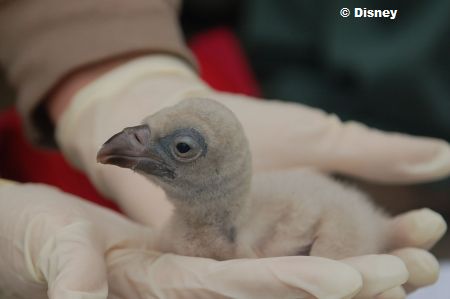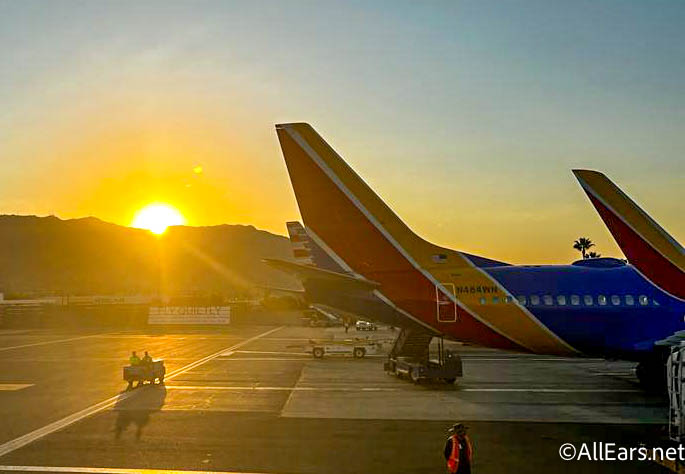LAKE BUENA VISTA, Fla., Jan. 21, 2009 – Disney’s Animal Kingdom Lodge welcomed the birth of two Ruppell’s Griffon Vultures earlier this month. They are the first hatchings of this threatened species at Walt Disney World Resort. Each chick weighed less than six ounces and was about eight inches long when hatched.

Over the past twenty years, the population of Ruppell’s Griffon Vultures has been declining. This reduction led the International Union for Conservation of Nature to raise the status of this species to threatened. Members of Disney’s Animal Programs Team hope to increase the species population and generate more awareness of the challenges these birds face.
When grown, each new-born vulture could reach sizes close to three feet in height , with a wingspan of nearly eight feet, and can weigh 15-20 pounds. They are also known for their high-flying skills, being among the highest flying bird on record, once spotted at an altitude of over 37,000 feet in the skies of West Africa. Ruppell’s vultures can fly more than three miles in six minutes and are able to stay in the air for as many as six to seven hours a day.
Ruppell’s vultures are highly social; they roost, nest and gather to feed in large flocks. While they are generally a quiet breed, they may become vocal at the nest and during feeding time. The Ruppell’s vultures pair up for life, which may be forty or fifty years.






















Trending Now
Two rides have announced months-long closures at Universal Studios Orlando!
Because I go to Disney World every day, people want to know if I still...
These are the things we love to do to feel FANCY at Disney World.
Stanleys are trending and you can grab them on SALE on Amazon before your next...
We recently made a stop at this restaurant to try out the Steakhouse 71 lounge...
We've become quite fond of these new (and very popular) bags, which is why we're...
Guests are demanding this Disney perk return soon!
Think you've done it all in Disney World? Here are six weird -- but cool...
Looking to fly to Disney World in 2025 and don't know where to start? We...
We hope you're a Frozen expert because this quiz is a doozy!
We took a trip to Adventureland and found some must-have souvenirs!
Don't miss out on these super low prices on Amazon for a bunch of cool...
Welp, we officially NEED this new item from Gideon's Bakehouse!
McDonald's has brought back a limited-time sandwich, but has given it a SPICY twist!
People are STILL making these same Disney World mistakes.
We are rounding up six Loungefly bags that are perfect for Taurus signs!
Are you eligible for a Disney snack discount? Find out!
We got our first look at the upcoming Mickey Shorts Theatre in Disney's Hollywood Studios!
Here's why I avoid the most popular park in Disney World, Magic Kingdom!
Harry Potter fans get the heebie-jeebies when they go here!